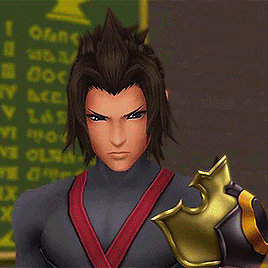
In addition, Hynes asks Bloom after the burial what his "Christian" name is. Again, Bloom suffers when the other three men acknowledge and greet Boylan, the "worst man in Dublin" Bloom simply cannot understand how three men whom he respects can be attracted to Boylan, and his perplexity leads to even more disquieted isolation. Dedalus's stilted rebuke reveals a stuffy side of Stephen's father, and it also characterizes Bloom as a blundering anti-hero who can seldom do anything right but, basically, Dedalus's comment is one that would be made to a social inferior. Dedalus corrects when Bloom tries to look through the paper to find the Dan Dawson speech, which has just been mentioned in the carriage (and which will later be quoted and commented upon in "Aeolus"). Dedalus is called Simon) is the only one left, and needless to say, Bloom enters the carriage last.Īlso, it is Bloom that Mr. The opening section brilliantly reveals Bloom's separateness: there is no need for the question, "Are we all here now?" since Bloom (who is called by his surname while Mr. In "Hades," Bloom is portrayed as the total outsider, and Bloom's fate, his isolation, is made all the more terrible because, as Joyce goes to great trouble to show, his acquaintances do not intentionally cut him off. And Father Coffey, who conducts the funeral service and who is humorously described as a dog, is a sort of Cerberus-figure, who guards the entrance to Hell, or Hades, but who can be compromised by dog biscuits. Among the characters in this section, the kindly Martin Cunningham is a sort of Sisyphus, a Greek symbol of futility: Cunningham spends his life trying to keep out of debts incurred by his drunken wife, who continually pawns the family furniture every Saturday. As the mourners pass the tenements, they see stripped-up sections of a street, suggesting a means of access to Hades. The four rivers of the Greek Hades are paralleled by the four rivers that the men cross on the way to the cemetery: the Dodder, the Liffey, the Grand Canal, and the Royal Canal. Odysseus's anxiety-ridden visit to the Underworld of Greek mythology corresponds to Bloom's trip to Glasnevin Cemetery to bury Dignam, who in turn corresponds to Elpenor, the intemperate follower of Odysseus, who broke his neck in a fall from the roof of Circe's palace. Other parallels with the Odyssey are very explicit in this episode. At the graveside, the men see a mysterious 13th mourner, a man wearing a Macintosh coat this is a visitant whose identity will never be disclosed in Ulysses, although he will appear in the newspaper report as being one of those at the burial. A boatman saved young Dodd, and his parsimonious father gave him only a florin tip for his troubles Simon Dedalus's comment, "One and eightpence too much," typifies the personality of this stiff, but often humorous, Micawber-like father. Dodd, who tried to drown himself because his father insisted that the son end an unsuitable love affair. Also, the men discuss the son of Reuben J. Power's rambling comments, reinforce the father-son theme and old Rudolph Bloom's dying request that Leopold take care of his dog, Athos (a parallel to Odysseus's faithful old dog Argos), suggests the novel's god-dog concept the word Athos, in fact, contains a hint of the word theos - that is, God. For example, Bloom's memories of his father's suicide, thoughts brought on by Mr. The conversation of the four men in the funeral carriage relates to several motifs in Ulysses. Menton was defeated by Bloom (by luck) at a game of bowls 17 years previous (with the young, unmarried Molly looking on), and Menton still holds a grudge. The chapter ends (still in Glasnevin Cemetery) with Bloom's telling the solicitor, John Henry Menton, of a dent in his (Menton's) hat and being rebuffed for his remark. The ceremony at the graveside records Bloom's thoughts about death - the contemplations of one who is outside of Catholicism. The carriage also passes Blazes Boylan Oust as Bloom is thinking of him), and it also passes a small coffin holding the corpse of a child. Bloom spies young Stephen Dedalus, and the other men look at him, Bloom noticing his mourning hat Simon Dedalus speaks up and curses Buck Mulligan, who he thinks is ruining his son.


The carriage, which is littered inside with the crumbs of a picnic and, in addition, has mildewed leather, passes an old woman who is peeking at the funeral procession through a window in her house. Power, and Simon Dedalus (who appears here in person for the first time in the novel). Bloom is entering the carriage, which will follow behind Dignam's hearse, together with Martin Cunningham, Mr. outside the house of the deceased Paddy Dignam in Sandymount.


 0 kommentar(er)
0 kommentar(er)
